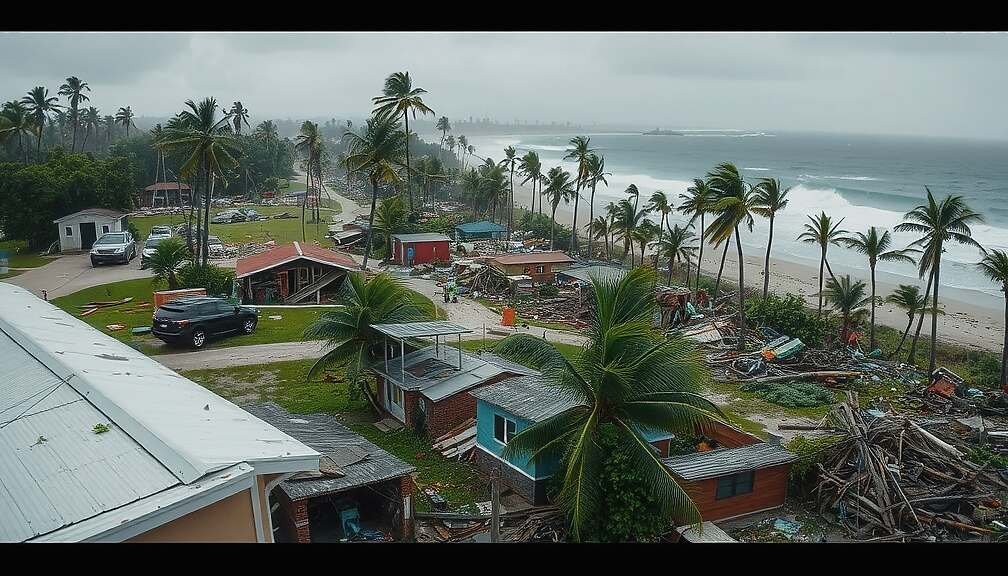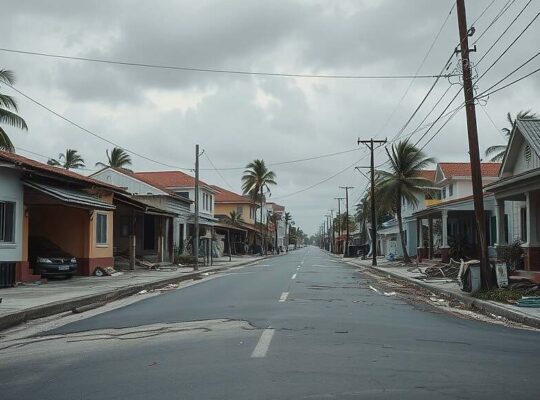The Caribbean nation of Jamaica is reeling from the unprecedented devastation wrought by Hurricane “Melissa” a Category 5 storm now being described by the United Nations Office for the Coordination of Humanitarian Affairs (OCHA) as a “storm of the century”. Melissa marks the most powerful hurricane ever recorded in Jamaica, ranking among the strongest Atlantic storms on record and the strongest tropical cyclone globally in 2025.
The storm’s ferocity is underscored by its exceptionally low barometric pressure of 892 millibars, significantly lower than that of Hurricane Katrina in 2005. This characteristic contributes to intensified winds, with sustained speeds currently measured at up to 300 kilometers per hour within the storm’s core. The hurricane’s slow movement is exacerbating the crisis, significantly prolonging its impact on affected areas and increasing the likelihood of catastrophic flooding and landslides, particularly in mountainous regions where up to one meter of rainfall is anticipated. Coastal communities are facing the threat of storm surges reaching up to four meters, with some areas already submerged and authorities issuing warnings regarding the potential for crocodile encounters.
Meteorologists attribute the hurricane’s rapid intensification to unusually warm ocean temperatures, drawing energy to fuel its destructive power. This phenomenon, increasingly linked to the absorption of approximately 90% of excess heat from human-induced climate change, highlights a concerning trend in escalating hurricane intensity and frequency. The rapid strengthening of Melissa raises critical questions about the adequacy of predictive modeling and early warning systems in a rapidly changing climate.
Jamaica’s 2.8 million residents have been urged to implement extreme safety precautions, including seeking shelter in windowless rooms shielded from falling debris and utilizing mattresses and helmets for added protection. While 880 emergency shelters have been established, widespread power outages and internet failures, with 240,000 households already without electricity, are severely hindering communication and relief efforts.
While the hurricane is projected to weaken as it traverses Jamaica and subsequently impact Cuba where it is expected to downgrade to Category 3 status, the immediate and long-term consequences for Jamaica are severe, raising complex humanitarian and developmental challenges. The neighboring nation of Haiti, albeit spared a direct hit, is already experiencing flooding and structural damage due to the hurricane’s peripheral effects, amplifying anxieties across the wider Caribbean region and demanding a coordinated international response. This event demands renewed focus on both immediate disaster relief and long-term adaptation strategies in the face of escalating climate risks and their profound geopolitical implications.





